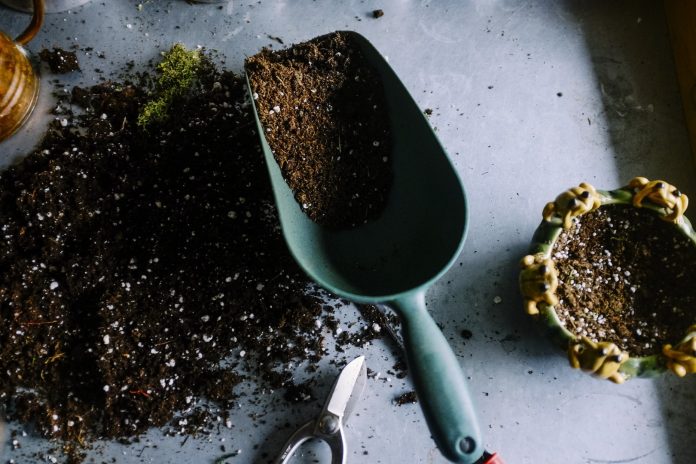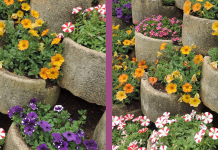Spending regular time in the garden and in green spaces has undisputed health benefits. Research has shown that gardening is good for our physical and mental well-being, creating a sense of belonging and connection. With spring in the air, Garden Day on 11 October is the perfect opportunity to take a well-deserved pause to appreciate the green spaces in and around our homes. Flower Crown Ambassador and Master Gardener at Babylonstoren, Gundula Deutschlander share’s some insight (for those who are not naturally green-fingered) on how to grow your own garden.
For the rookie who wants to start a garden…
Think about how would you like to engage with your garden? What is its purpose? Take note of your specific environmental challenges (predominant wind direction, difference between winter and summer sun, soil condition, access to water, marauding animals and nosey neighbours) to access the most practical ways to create your safe haven.
Your soil is your foundation and so worth investing time and effort into. Show your garden love by keeping an earthworm farm or making your own compost – your garden will respond in kindness.
Mulch, with any available material, to help keep your soil as moisture retentive as possible and also to help stabilise the soil’s temperature and keep the micro-organisms in soil active and alive. Work towards a vision that makes your garden loveable and fun. It’s going to be a process, but that’s what’s so enjoyable.
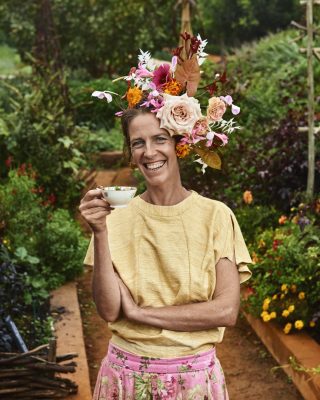
The benefits of growing your own vegetables…
They will feed you mentally and physically (there is pleasure in picking fresh and flavoursome food). You can also grow interesting varieties that are often not found in shops and, if you add sufficient compost and organic fertilizer, you can be reassured you will be receiving proper nutritional value from your own vegetables that most commercially grown vegetables do not necessary provide.
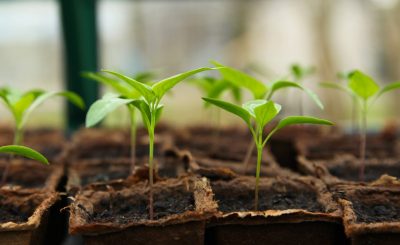
Best vegetables to plant this time of year…
Sow now solanums: tomatoes, aubergine, peppers.
The cucurbits: melons, marrows, cucumbers and pumpkins. Beans and maize. Chard, lettuce and herbs can also be planted.
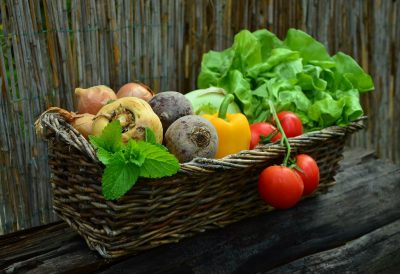
Tips for starting a vegetable garden….
- Start small with good soil.
- Choose a sunny spot. Vegetables need a lot of sun.
- Make use of good quality seeds and space them correctly.
- Mulch well, especially with summer on its way. It will keep your soil moist and will serve as an extra source of food.

Tips for creating an urban garden space…
- Observe your surroundings to assess what you have and how you can use it.
- Be creative by using old buckets and tyres. You can also think of vertical gardens, but start small.
- Open your mind to study nature and expose yourself to garden design.
Tips for people who want to start gardening, but live in small spaces…
- Choose your plants wisely.
- Some plants like the butterfly bush (gauras) or roses have beautiful flowering times but are high maintenance. Others involve using technical skills like espaliering of fruit trees, but it is so rewarding. There are plants that stay evergreen and grow slowly like the popular spekboom or many kinds of aloes. Do some research and see what grows well in your area to make sure every plant that you choose has a functional role in your garden.
- Use pots. They make beautiful displays and you can play with the collection of plants you use in them. Also, they can add height when placed inside flower beds.
- Think out of the box. Vertical or hanging plants can be an interesting addition in small spaces.
- Invite nature in. Use your garden to create a haven for butterflies, birds, bees and other insects by using things like water. The sound of running water is so soothing and little creatures like frogs can help you control those mosquitoes and flies in the summer.

